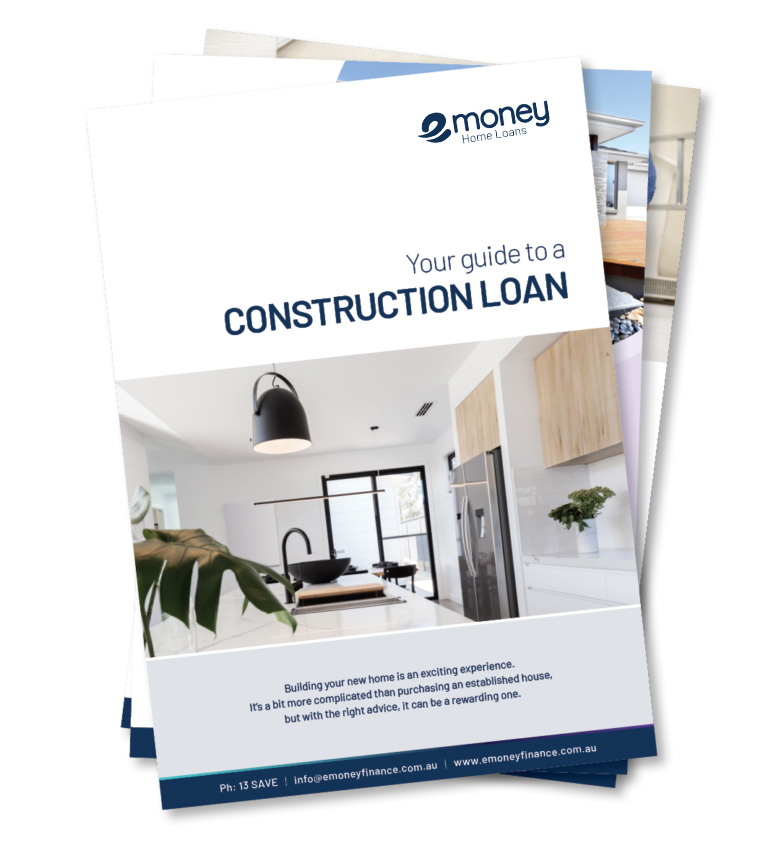
Tips for getting a construction loan
Thinking of building your new home but confused about the construction loan process? Then read on as we offer some tips on how to apply for a construction loan.
Applying for a construction loan is a little different to applying for a home loan for an established house. In addition to evidence of your financial situation, you will need to provide a building contract, which details the construction stages and drawdown schedule. This is because construction loans are paid out progressively once each stage of construction has been completed. Your lender will also require an estimated build time and final cost, along with a copy of the building plans and building specifications.
Apply for conditional approval first
To save you from disappointment—and to give you a clear idea of your budget—we recommend applying for conditional approval prior to engaging a builder. That way, when you start researching your options you won’t waste time on building packages that are out of your price range. To get conditional approval, your lender will formally assess your financial situation to give you an indication of how much you could borrow. It is important to note conditional approval is subject to certain conditions, such as the lender’s valuation of the property. Conditional approval is typically valid for 90 days.
Once you have conditional approval it’s time to find your land, designer and licensed builder. Note: it’s still a good idea to include a finance clause in your offer to purchase contract (even if you have conditional approval) to cover any unexpected issues you may encounter with the formal approval process.
Documents required for a construction loan
When you are ready to progress your home loan application and apply for formal approval, you will need to supply your lender with documentation about the build. This will vary between lenders but they will typically require:
- A signed copy of your fixed priced, HIA compliant building contract
- A schedule of progress payments
- Council approved plans and specifications of the build
- Quotes for work not included in the fixed price building contract
- Copy of the builder’s licence
- Copy of the builder’s insurance policy
How do progress payments work?
Unlike traditional home loans that pay out a lump sum at settlement, constructions loans are paid out gradually to coincide with the various construction stages. Progress payments are made directly to the builder on completion of each stage, in accordance with the approved progress payment schedule. Your lender may order inspections at each stage of the build prior to releasing funds—this information will be outlined in the terms of your home loan documents.
Your lender will keep you informed throughout the process to let you know when a progress payment has been requested and when it has been made.
Paying interest on your construction loan
The interest rate you are charged will depend on the type of construction loan you have and it’s terms and conditions. That said, many construction loans have an interest only repayment period during the construction phase. This makes your repayments more manageable while your home is being built, as you will only be paying interest on the part of the loan that has been drawn. With a typical construction loan, repayments revert to principal and interest after the final progress payment is made. Of course, the exact terms of each loan differ so it is important you fully understand the terms and conditions that apply to your construction loan by reading through your home loan contract prior to signing.
For more information on construction loans download our handy guide or contact an emoney lending specialist who can help you choose the ideal loan for your needs.

First Home Buyer's Guide
Enter your email address for instant access to our handy First Home Buyer's ebook.

Construction Loan Guide
Building a new home. Find out about the construction loan process.

